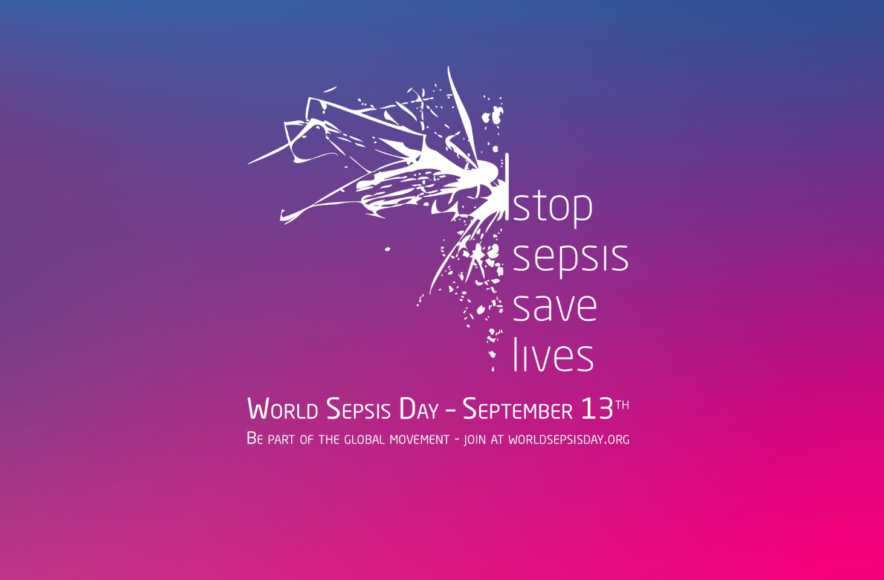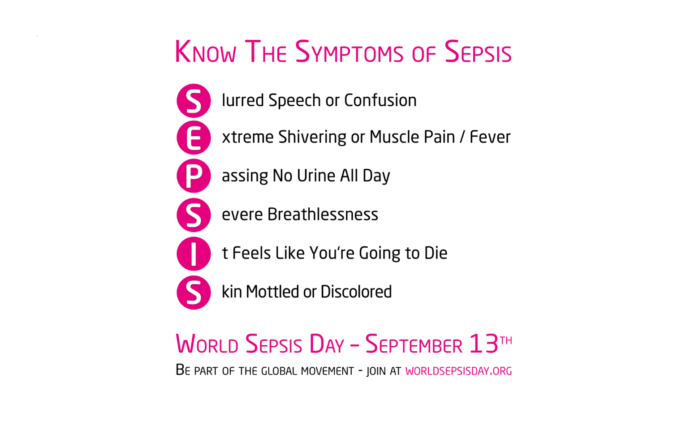Spotting the signs of sepsis

What is sepsis?
Sepsis is not an infection. It happens when our immune system responds in the wrong way to an infection and attacks the whole body, causing inflammation.
It is a life-threatening illness that can lead to organ failure and death if left untreated.
In the UK alone, there are 123,000 cases of sepsis per year with nearly 37,000 deaths.
In many cases however, sepsis is avoidable and treatable and early identification is key to successfully treating sepsis.
World Sepsis Day takes place on 13 September every year, during Sepsis Awareness Month.
Signs of sepsis – what to look out for
Early symptoms of sepsis usually develop quickly and can include:
- Temperature 38.3 and above or below 36.0
- (Temperature 37.8 and above – consider Covid-19)
- Shortness of breath
- Tachycardia – fast heartbeat
- Shivering or muscle pain
- Not passing urine
In some cases, symptoms of more severe sepsis or septic shock (when your blood pressure drops to a dangerously low level) develop soon after.
These can include:
- Feeling dizzy or faint
- Slurred speech, confusion or disorientation
- Nausea and vomiting
- Diarrhoea
- Cold, clammy and pale or mottled skin (Sepsis Trust, 2020)
If you suspect someone might have sepsis, you should call 999 and tell them “this could be sepsis” or go to A&E immediately – every hour counts.
What causes sepsis?
Sepsis can be triggered by any infection but it most commonly follows urinary tract infections, skin infections (e.g cellulitis) and infections of the abdominal organs or lungs including pneumonia or Covid-19.
Sepsis can happen to anyone but people who are more at risk include:
- Very young children and older people
- People with weak immune systems or on chemotherapy
- People who are malnourished
- People with Down’s Syndrome
- People who are prone to infection
- People who have catheters, tracheostomy or feeding tubes (PEG)
- People with existing health conditions such as diabetes
- People in hospital because of another serious illness
- People who have just had surgery or who have wounds or injuries as a result of an accident

More information about sepsis (including easy read)
NHS England have produced easy read guides for more information about sepsis and how to avoid it:
For more resources about sepsis and downloads including posters, please visit The UK Sepsis Trust website.
- Alison Worsfold is Head of Healthcare at United Response.